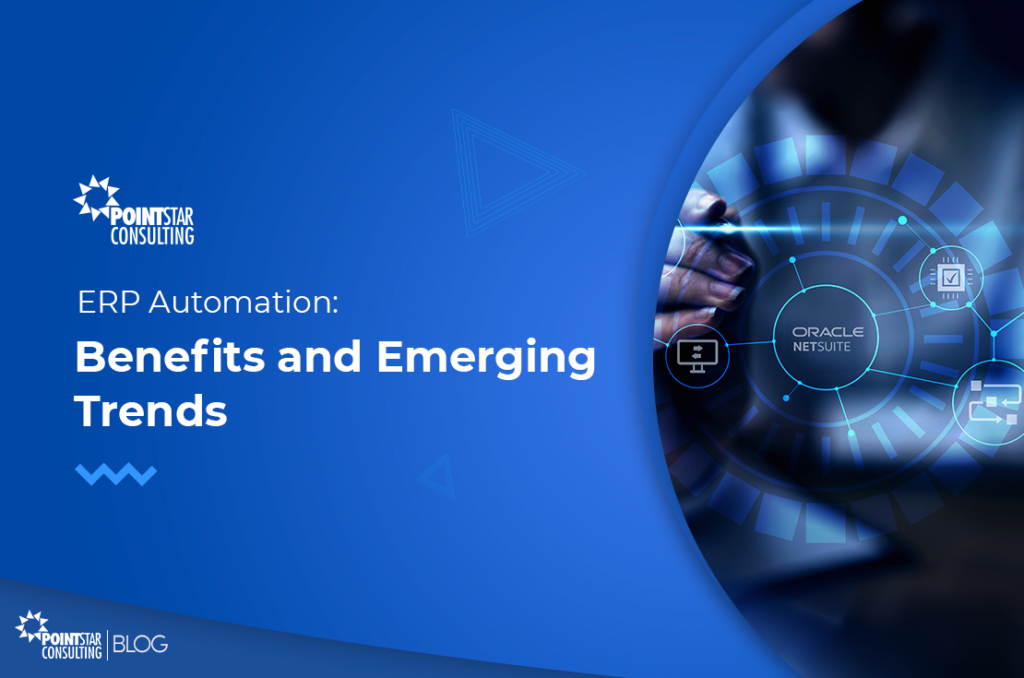ERP automation systems play a pivotal role in optimising business operations by harnessing the power of a centralised database that consolidates data from various departments within an organisation.
The utilisation of a cloud ERP system can significantly enhance operational efficiency. Recent technological breakthroughs, such as cloud-based solutions, have democratised access to ERP systems, extending their benefits to enterprises.
Imagine a scenario within in an enterprise where an accountant relies on an accounting application to create and manage spreadsheets, while a salesperson utilises a separate database.
This situation often leads to redundant data entry, heightened risks of errors, and operational delays. This serves as a prime example of how implementing a cloud ERP system can revolutionise the organisation, offering a centralised database and a unified platform that seamlessly facilitates the exchange of real-time information across all departments.
ERP Automation: Explained
Automated cloud-based ERP acts as a software that helps simplify day-to-day business operations. The software helps replace cluttered desks and filing cabinets with a streamlined system. This helps ensure data security for the organisation and accessibilities for employees. It also aids in maintaining compliance with internal policies and external regulations, allowing the company to navigate a competitive market.
With cloud ERP systems, customers are allowed to place credit orders online within an instant and also are allowed to check the availability of the inventory online. Orders are then automatically sent to the warehouse, and customers receive timely updates, including invoice payment guidelines. The ERP system closely monitors cash flow, guaranteeing precise financial records.
Additionally, it cross-checks data like purchase orders, delivery estimates, and prices, eradicating redundant data input. If complications like unanticipated inventory shortages arise, notifications swiftly reach the appropriate parties, averting mistakes and conserving resources for the manufacturing company. ERP automation reduces the likelihood of payment errors or shipping mishaps.
In this article, we will explore the benefits and trends of using an ERP Automation and how these advantages can accelerate the growth of your business in the future.
The Advantages of Implementing ERP Automation
ERP automation deeply influences many critical business operations, and the advantages of ERP implementation can be substantial. Below, we discuss some benefits widely regarded as nearly universal.
Efficiency and Productivity
One of the main benefits of cloud ERP systems is to automate repetitive tasks. This will help reduce human errors and enhance productivity in the organisation by streamlining the business processes.
Cost Reduction
Through automation systems and better resource allocation, organisations can lower the costs that are related to labour, inventory management, and more.
Accurate Reporting with Real-time Data Analysis
Cloud ERP systems provide a 360-degree view of a company’s processes, allowing the organisation to have real-time, accurate data, and also allowing accurate decision-making to be made based on the data that was collected.
Accessibility
With cloud-based solution, modern ERP systems allow employees to access the organisation’s data based from anywhere, on any device. Another notable advantage of a cloud ERP is its accessibility.
Emerging Trends in ERP Automation: What’s Now and What’s Next
These trends reflect the ongoing evolution of ERP systems to meet the changing needs and challenges of businesses across various industries.
Cloud-based ERP Adoption
There has been an increase in adoption of cloud-based ERP systems. Its accessibility and flexibility has made cloud-based ERP attractive to businesses of all sizes.
Advance Integration and Automation system
Cloud ERP systems are evolving by incorporating advanced technologies like Artificial Intelligence (AI), Machine Learning (ML), and the Internet of Things (IoT). This allows companies to gain critical insights to enable strategic decision-making. Moreover, with the automation system, cloud ERP systems will also break out of the traditional processes by eliminating tedious tasks, reducing errors, and repetitive tasks.
Data Accuracy, Real-time insights, and Data Driven Decision Making
Modern ERP systems prioritise real-time data accuracy and insights generation, help businesses make informed decisions quickly, respond to market changes effectively, and optimise various aspects of their operations.
Integration with Existing systems
Cloud ERP systems are being integrated with other technology solutions such as warehouse management systems and digital marketing platforms. This promotes seamless data flow across different aspects of a business’s operations and across departments.
Unlock the Advantages of ERP Automation Using Oracle NetSuite
Cloud ERP systems offer fully customisable dashboards for businesses, allowing them to adjust the system to fit their business needs. The Oracle NetSuite cloud ERP system, for instance, is a cloud-based solution that automates processes, freeing room for new innovation. It integrates operations into a unified platform, providing accurate data on customisable dashboards and generating reports. Oracle NetSuite is a scalable solution which prepares your business for global expansion and growth.
These systems also utilise advanced technologies like AI, ML, and IoT for business insights, allowing leaders to focus on growth.



